
Note: recommended jobs have a ☆ next to them.
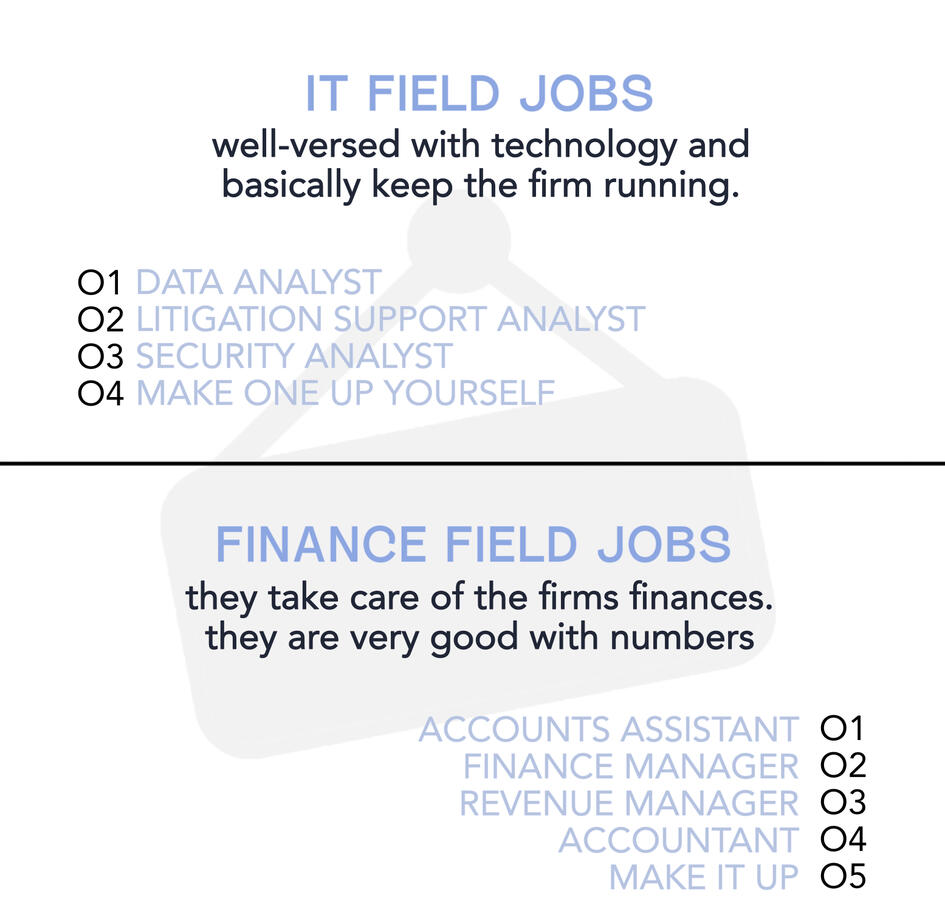
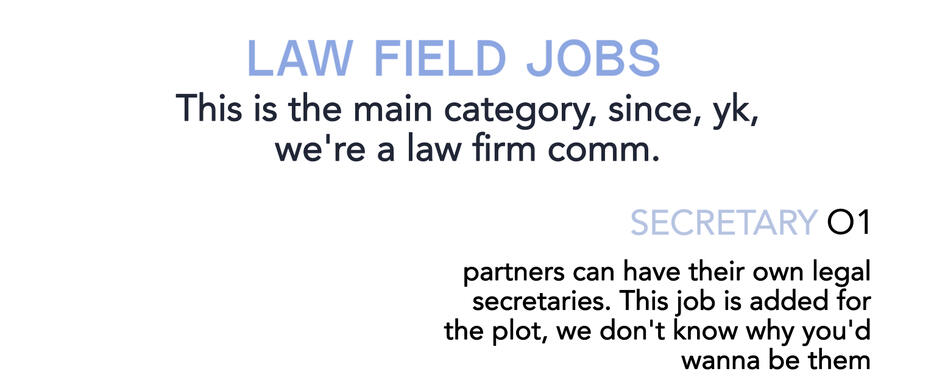
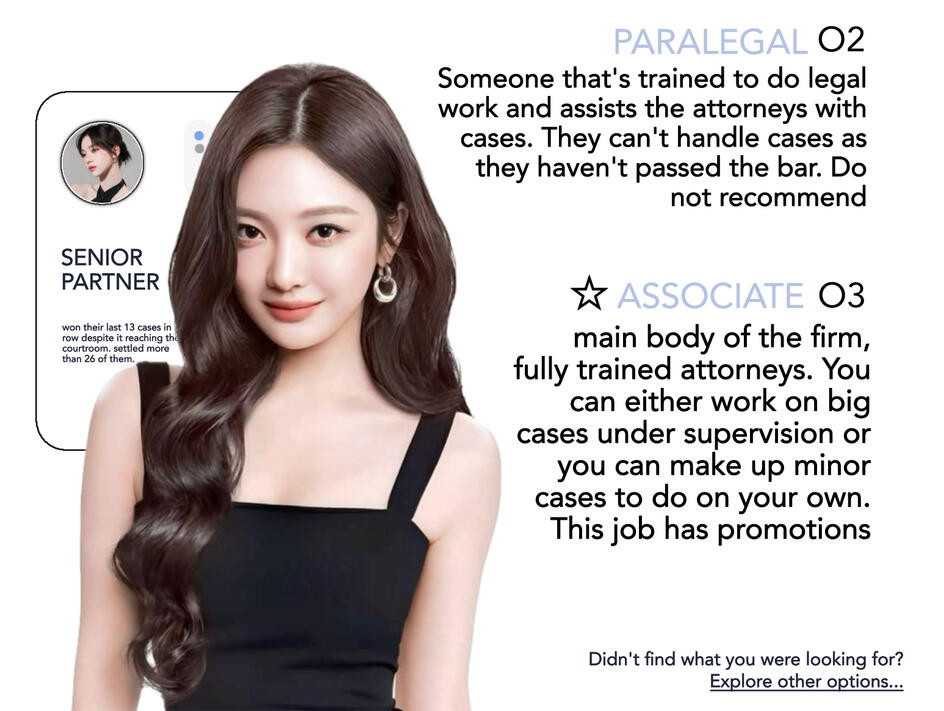


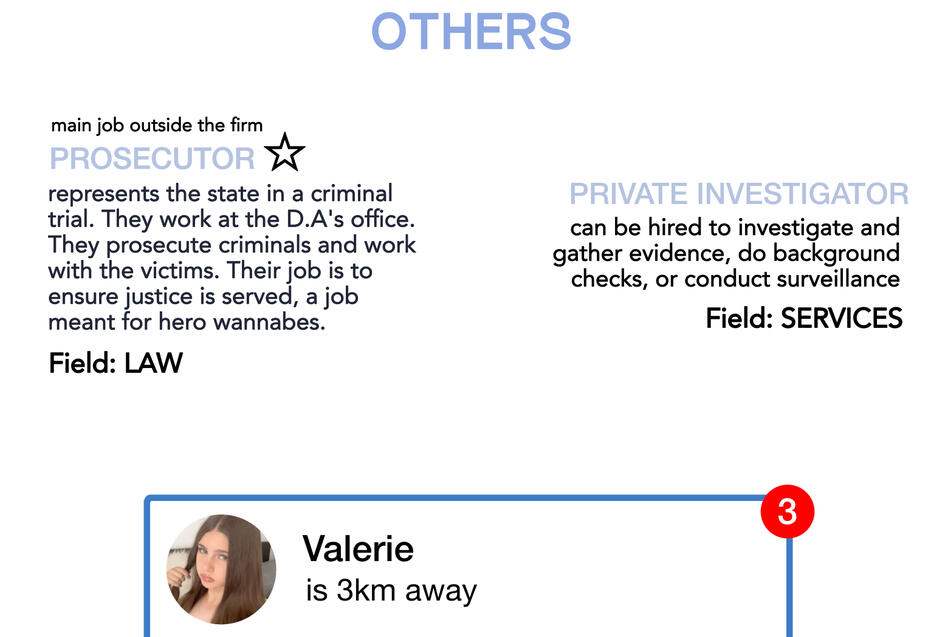

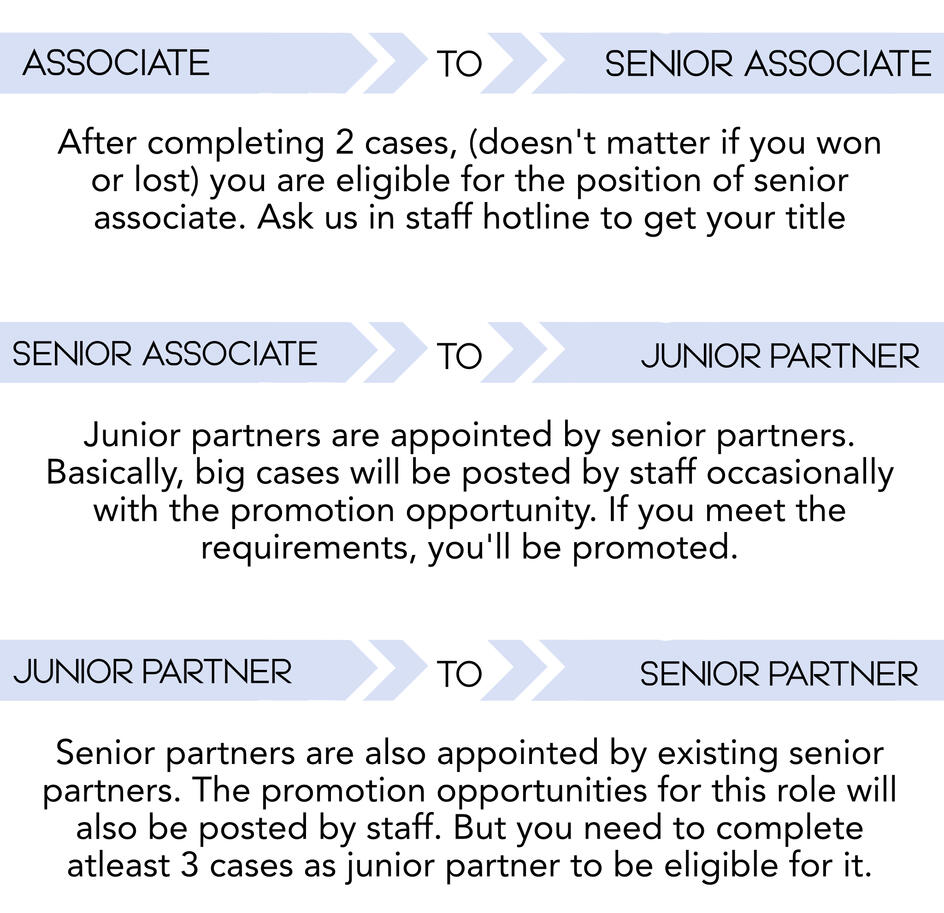
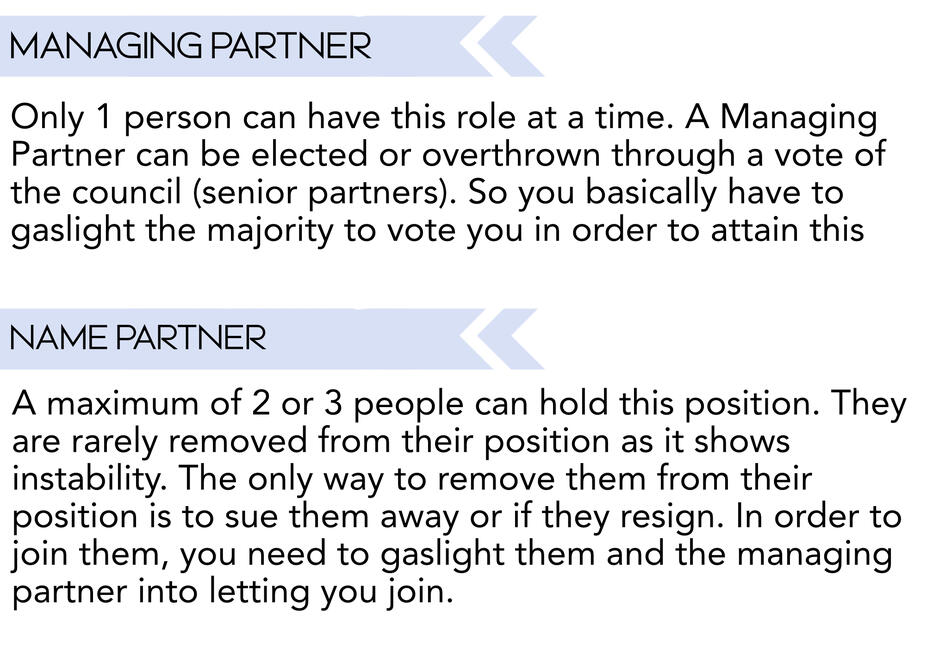
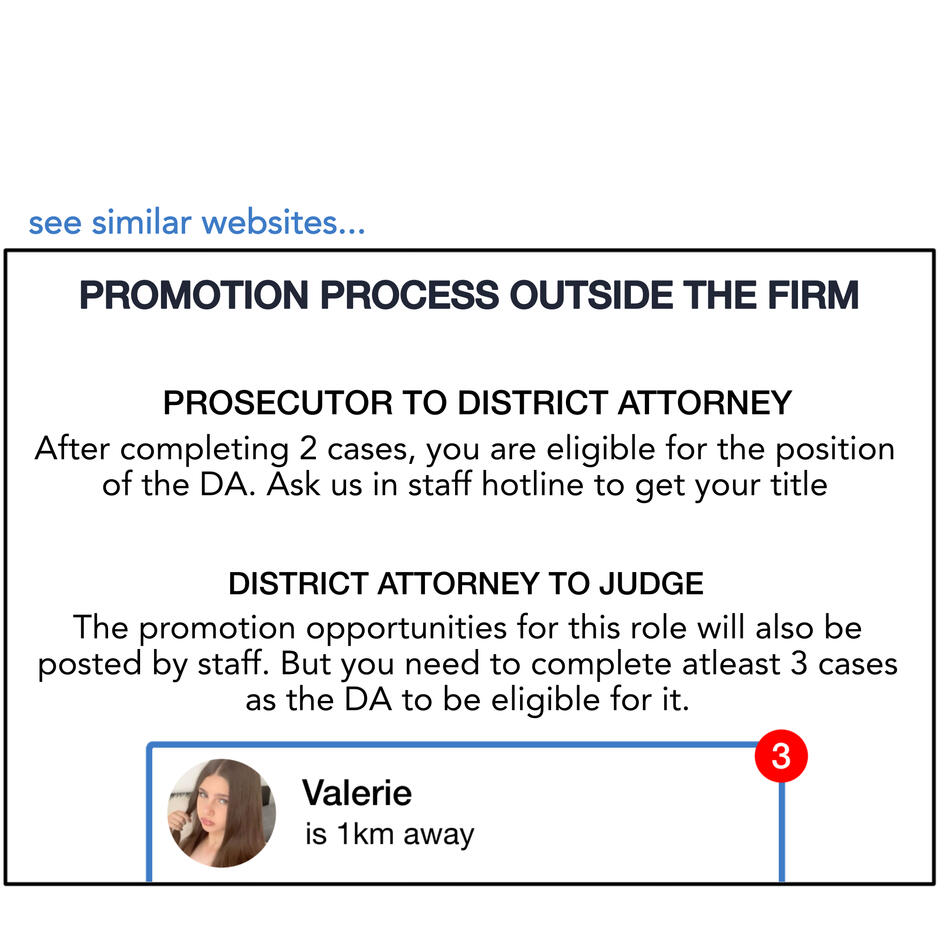
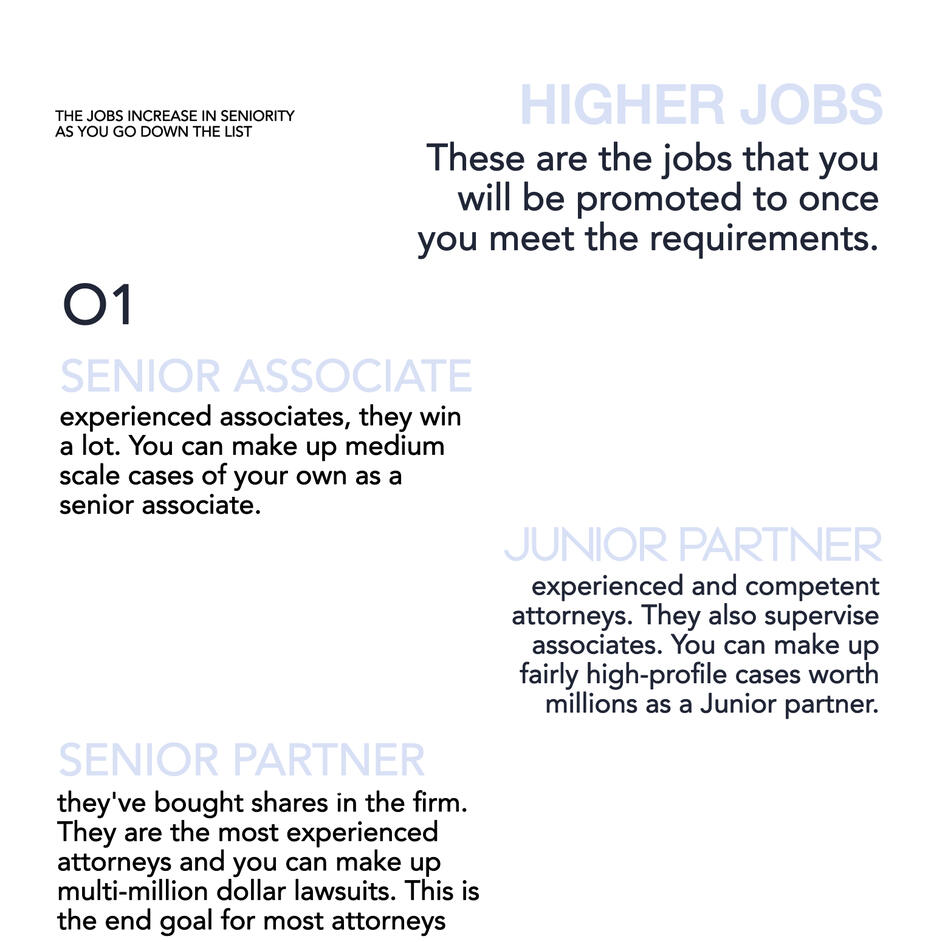

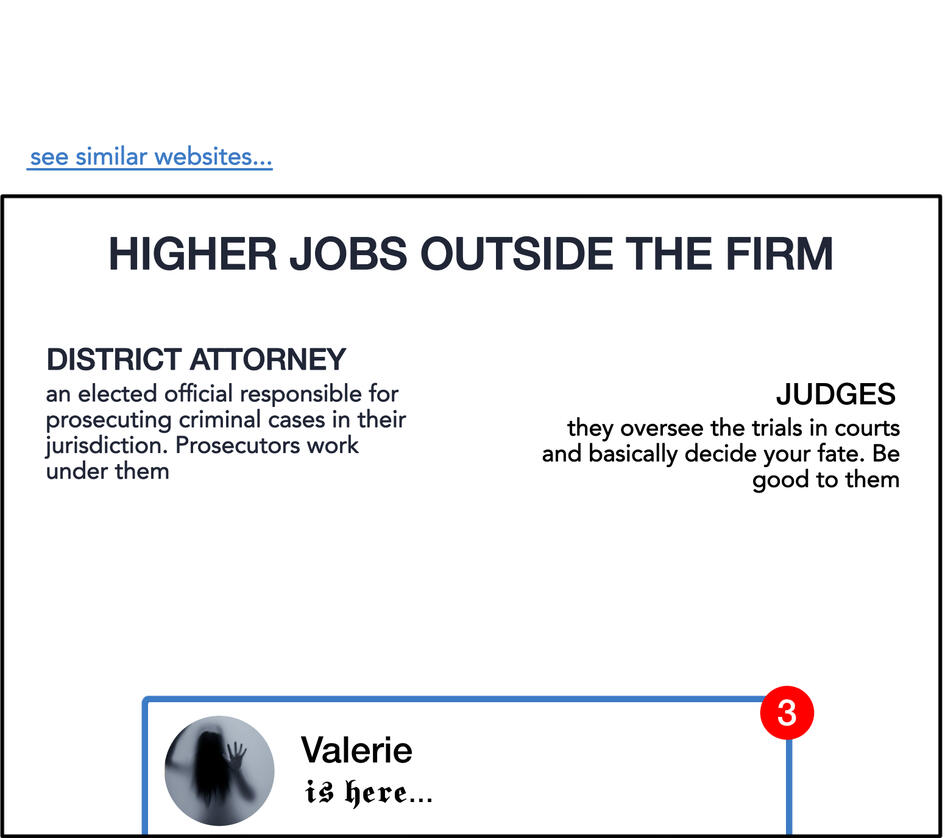
Affidavit: A written statement of facts sworn under oath
Brief: A written document submitted by a lawyer arguing why their client should prevail.
Decree: A formal order from a court that settles a case and determines right
Defendant: The party against whom a lawsuit is filed in civil cases
Deposition: testify under oath, usually takes place in a conference room and recorded in written form
Hearing: A hearing is typically used to gather information, only judge is present. If there's enough evidence presented in hearing, case will be taken to trial.
Injunction: court order that requires someone to do or stop doing something.
Motion: formal request made to the court for a specific ruling or action.
Perjury: lying or misrepresenting under oath
Petitioner: The person who initiates a legal action, especially in family or probate cases (similar to a plaintiff in civil matters)
Plaintiff: person who initiated lawsuit
Pro bono: legal work, provided voluntarily and without payment, typically to those who cannot afford it
Respondant: The party who answers or responds to a petition filed against them (similar to a defendant)
Settlement: agreement between parties to resolve a case without going to trial
Subpoena: a writ ordering a person to attend court or submit a document (it's a legal order so they HAVE to testify/submit the document, it can't be avoided)
Trial: a trial is used to determine guilt or liability, has both judge and jury. More formal than hearing.
Under oath: you have sworn to say the truth and will face legal consequences for lies
Verdict: The final decision made by a jury (or judge) at the end of a trial
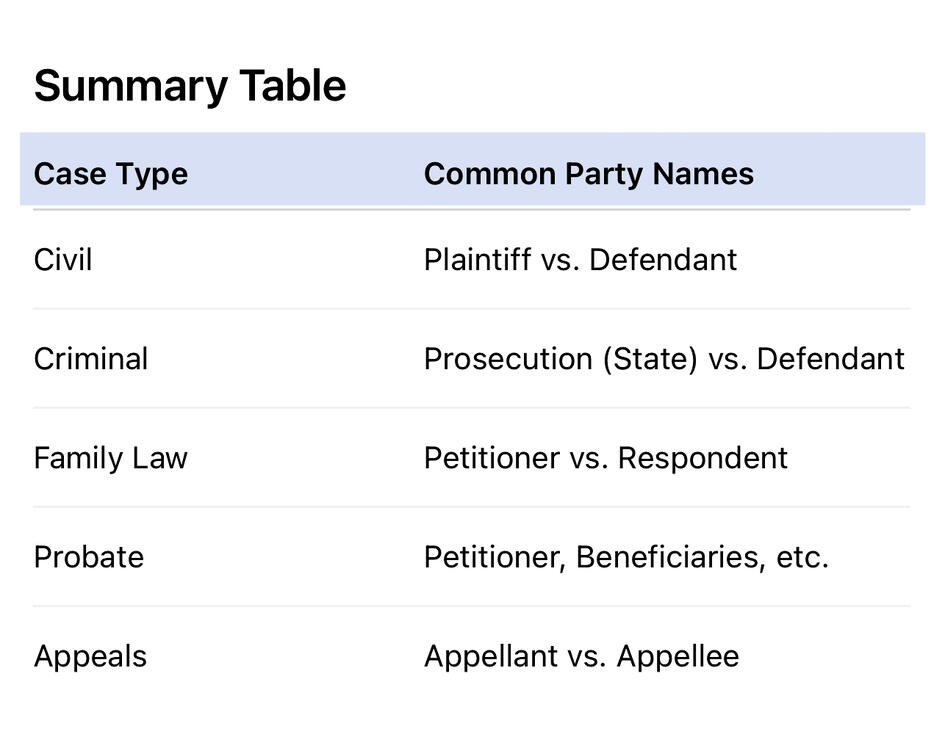
Note: ask staff if you're still uncertain about something